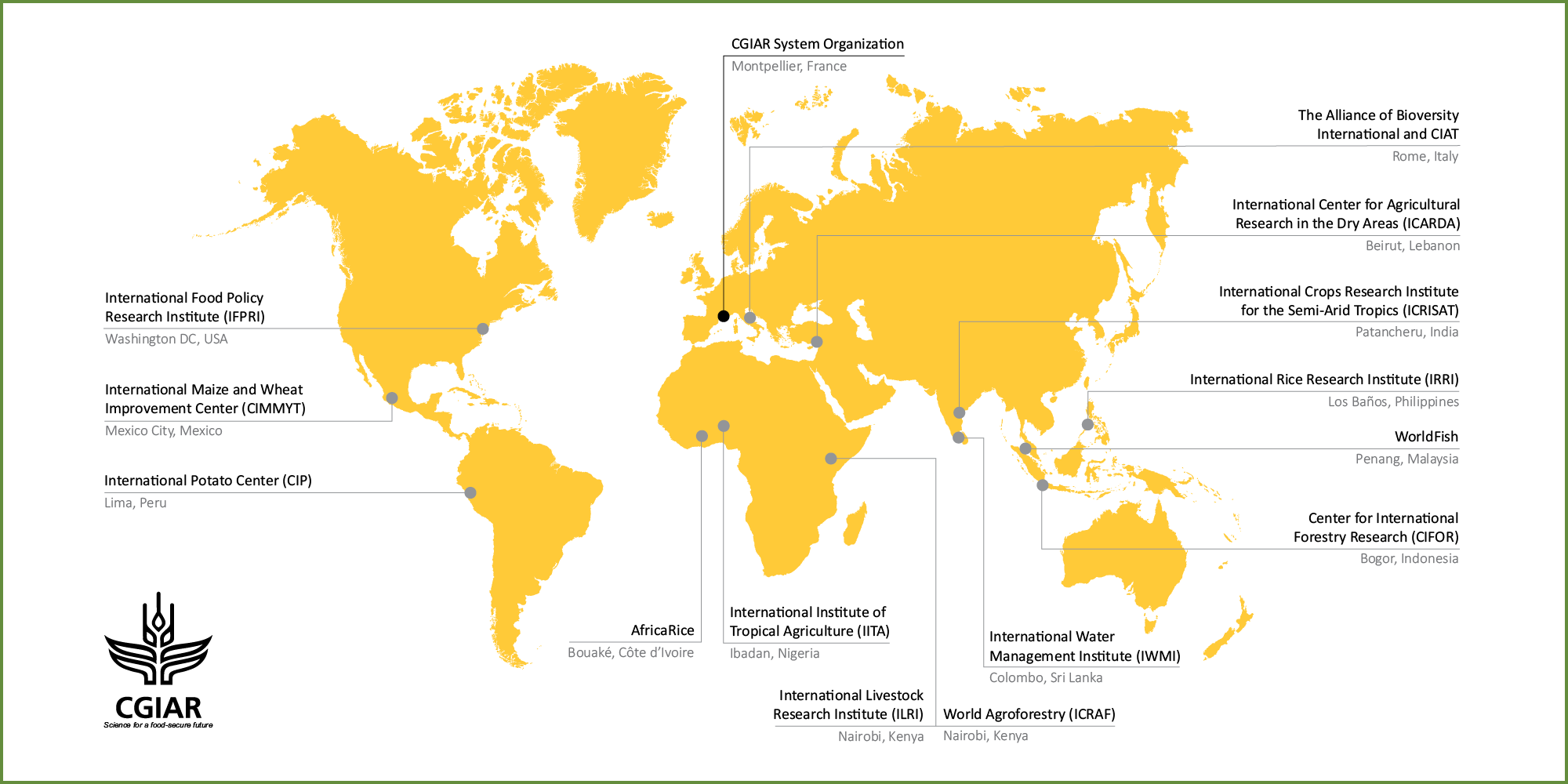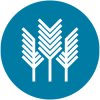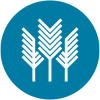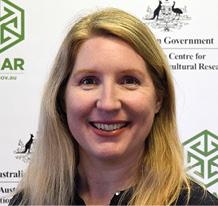Global collaborations
ACIAR works with international partners to foster and implement global research collaborations that support strategic development in agriculture, fisheries and forestry.
The ACIAR 10-Year Strategy 2018–2027 proposes that by leveraging strategic international partnerships, we can continue to influence and promote more productive and sustainable agricultural systems for the benefit of low-income and lower-middle-income countries and Australia. ACIAR builds and maintains multilateral partnerships with a range of international organisations, institutes and associations that are engaged in agricultural research and the delivery of global public goods. Our goal is to be a valued, engaged donor and a strong, innovative partner in international agricultural research.
The funding and support of international agricultural research centres is one of the roles of ACIAR, mandated by the ACIAR Act. We foster and maintain active working relationships with international agricultural research centres by providing timely, reliable and consistent funding, as well as strategic advice on research and governance.
The largest component of support is provided to CGIAR, a network of 15 research centres dedicated to reducing rural poverty, increasing food and nutrition security for human health, and improving natural resource systems and ecosystem services.
In addition to CGIAR, we establish and foster partnerships with other international research centres and networks relevant to our mission. A snapshot of these is provided in the section below Partnering in global and regional programs.
We also develop and manage co-investment alliances and partnerships with like-minded organisations and donors (see section Building strength through collaboration). Co-investment partnerships demonstrate deep trust, enabling partners to leverage capacity and complement research strengths to build a critical mass of resources to invest in more ambitious research.
During 2021–22, we will seek to strengthen multilateral collaborations by serving the international research community in 3 key ways:
- as an engaged investor
- as a strategic research facilitator
- as a broker of Australian science (by engaging relevant Australian research expertise).
Australia as a global contributor
Partnerships built by ACIAR Global Research Collaborations contribute to Australia’s soft diplomacy goals. Our deep engagement in collaborative international research maximises the influence of the Australian agricultural innovation system and the international standing of Australian agriculture.
Investing in global agricultural innovation
Australia has invested in CGIAR since it was established in 1971. CGIAR is the world’s largest global agricultural innovation network, comprising 15 international agricultural research centres with more than 8,000 scientists who work mostly in low-income and lower-middle-income countries. The location of these centres is shown in Figure 2.1. The CGIAR research centres work towards a world free of poverty, hunger, malnutrition and environmental degradation.
With a presence in more than 70 countries, and a deep knowledge of local customs, values and markets, CGIAR research centres work closely with more than 3,000 partner organisations. These include national and regional research institutes, civil society organisations, academia and the private sector.
CGIAR, which celebrates its 50th anniversary in 2021, is better connected to the global development agenda than any other agrifood research entity. CGIAR research centres are responsible for hands-on research programs and operations guided by policies and research directions set by the CGIAR System Board with guidance from the CGIAR System Council. The CEO of ACIAR represents Australia on the System Council. The centres conduct world-class, interdisciplinary research that combines biophysical and social sciences to deliver development impact at scale. CGIAR operates on an annual budget of about US$900 million.
During 2021–22, CGIAR will continue to move towards a unified and integrated ‘One CGIAR’. This will better equip the network to swiftly respond to new challenges such as the COVID-19 pandemic. In essence, the reform involves a move from the network of 15 independent international research centres, currently configured mostly around agricultural commodities, to a more cohesive structure under a common board. ACIAR has been deeply engaged in the reform process, as this will involve profound change across CGIAR, its culture, values, people, policies and systems. We have actively contributed to the reform to ensure CGIAR is well-placed to deliver against both the United Nations (UN) Sustainable Development Goals (SDGs) and the Paris Agreement, as well as to attract new funder contributions.
ACIAR has been a regular and significant funder of and research partner to CGIAR since 1982, as mandated by the ACIAR Act. Accordingly, Australia has high-level representation on CGIAR governance bodies.
Australia contributes to CGIAR alongside the World Bank, United States of America (USA), Bill & Melinda Gates Foundation, Germany, India, United Kingdom, European Commission and Mexico among many others. Further information on CGIAR governance and funding can be found on the CGIAR Governance and CGIAR Dashboards sites on the CGIAR website. Australian scientists contribute at the highest levels of leadership within the CGIAR.
Agricultural research centres of the CGIAR program
CGIAR investment 2021–22
ACIAR provides both unrestricted (core) and restricted project funds to CGIAR. More than half of the funding is unrestricted, and this is reviewed annually. Restricted funding is delivered through specific research projects delivered by individual centres in the CGIAR network. Australian support of CGIAR in 2021–22, through ACIAR, is forecast to be A$23 million (Table 3).
During 2021–22, CGIAR will transition to a new research portfolio that strives for global and regional impact by organising its work around 3 action areas:
- Systems Transformation
- Resilient Agrifood Systems
- Genetic Innovation.
This will fit the newly designed 2030 Research and Innovation Strategy, which aims to ensure that research provides real solutions for development. This is a substantial shift in the way CGIAR works, and will be achieved following 7 new implementation approaches:
- embracing a systems transformation approach
- leveraging ambitious partnerships for change
- positioning regions, countries and landscapes as central dimensions of partnership, worldview and impact
- generating scientific evidence on multiple transformation pathways
- targeting risk-management and resilience as critical qualities for food, land and water systems
- harnessing innovative finance to leverage and deliver research through new investment and funding models
- making the digital revolution central to our
way of working.
To ensure research excellence and value for investment in CGIAR for Australia, during 2021–22 ACIAR will:
- participate at the highest levels of governance of the CGIAR system, through active membership and leadership on the CGIAR System Council, the Strategic Impact Monitoring and Evaluation Standing Committee, Investment Advisory Groups and Initiative Design Teams
- continue our collaboration with other donors to CGIAR through participation in multi-funder activities that align with ACIAR strategy and Australian interests
- lead coordinated Australian engagement with CGIAR, including consultation with the Department of Foreign Affairs and Trade (DFAT) and other Australian organisations, primarily through the CGIAR Australian Leadership Group, established by ACIAR in 2015
- involve ACIAR Research Program Managers in the technical oversight of CGIAR Research Programs.
Impressive return on investment
CGIAR delivers impressive economic, social and environmental returns on research investment. Over the past 5 decades, the benefits of CGIAR investment are tenfold for each dollar invested.
A 2020 study calculated a benefit-cost ratio of 10:1 for CGIAR investment since 1961, which is primarily due to enhancing the yields of staple food crops in developing countries. There are, however, additional less-easily measured payoffs such as greater food abundance, cheaper food, reduced rates of hunger and poverty, and a smaller geographical footprint of agriculture.
The outcomes of CGIAR investment advance progress towards the UN Sustainable Development Goals.
Not considered in the study are the benefits to developed countries. CGIAR research outputs have helped keep Australian farmers competitive in world markets by increasing yields and reducing costs. CGIAR germplasm has been incorporated into, and has greatly improved, Australian plant and livestock breeding programs.
For example, 98% of all wheat grown in Australia is derived from CGIAR wheat germplasm, representing a major contribution to increased productivity on Australian grain farms. CGIAR germplasm is also prominent in improved varieties of sorghum, maize and chickpea in Australia.
Source: The payoff to investing in CGIAR research (2020)
Partnering in global and regional programs
In addition to our partnership with CGIAR, ACIAR has formal multilateral partnership arrangements with international agricultural research centres and networks. During 2021–22, we will support global research collaborations with:
- The Pacific Community
- Asia–Pacific Association of Agricultural Research Institutions
- World Vegetable Center
- Centre for Agricultural Biosciences International
The Pacific Community
The Pacific Community (SPC), previously known as the Secretariat of the Pacific Community, has been the principal scientific and technical organisation working to support development in the Pacific region since 1947. SPC is an international development organisation owned and governed by 26 country and territory participants.
SPC provides a regional specialist technical expertise to strengthen or, in some cases, supplement regional and national capacity. Of SPC’s core functions, some are of particular interest to ACIAR:
- to strengthen sustainable management of natural resources (fisheries, forestry, land use, agriculture, minerals, water)
- to improve pathways to international markets
- to improve multi-sectoral responses to climate change and disasters
- to advance social development through the promotion of human rights, gender equality, cultural diversity and opportunities for young people
- to improve multi-sectoral responses to non-communicable diseases and food security.
SPC and ACIAR have worked in partnership for more than 30 years and SPC is a key partner of both ACIAR and DFAT. SPC helps deliver Australia’s strategies to support the production of strategic regional public goods with strong benefits for the region’s agriculture, fisheries, forestry and biosecurity sectors. ACIAR currently provides core and project funding to the Land Resources Division and Fisheries Aquaculture and Marine Ecosystems, with the current core strategic partnership arrangement ending on 31 December 2021.
The partnership arrangement between ACIAR and SPC supports the production and maintenance of scientific, technical and management capacities, and activities in agriculture and fisheries that provide shared benefits for agricultural development activities of Pacific island countries and territories. Our funding is also aimed at building stronger strategic relationships between our organisations, enhancing strategic management capacity in the Land Resources Division and strengthening capacity for coastal fisheries development in Fisheries Aquaculture and Marine Ecosystems Division.
SPC facilitates the participation and engagement of ACIAR in regional consultation processes such as Pacific Week of Agriculture, Heads of Agriculture and Forestry Services and Ministers of Agriculture and Forestry Services. During 2021–22, ACIAR and SPC will collaborate to progress strategic regional initiatives, particularly mitigating the impacts of current and future risks, such as the COVID-19 pandemic. We will also engage with SPC to consider the nature of the strategic partnership beyond 2021.
Asia-Pacific Association of Agricultural Research Institutions
The Asia-Pacific Association of Agricultural Research Institutions (APAARI) promotes and coordinates the national agricultural research institutes in the Asia-Pacific region, through inter-regional and inter-institutional cooperation. APAARI’s Strategic Plan 2017– 2022, Pathways to strengthened agrifood research and innovation systems in Asia and the Pacific, identifies strategic priorities that are used to inform our input into its wider regional consultation process.
ACIAR has a history of working with and supporting APAARI. We provide annual core funding for research communication, knowledge management, advocacy for agricultural biotechnology, support for capacity building, and participation in expert consultations with national agricultural research system leaders in the region.
During 2020–21, ACIAR will represent Australia in chairing the APAARI Executive Council.
World Vegetable Center
The World Vegetable Center (WorldVeg) is an international non-profit research and development institute committed to alleviating poverty and malnutrition in low-income and lower-middle-income countries through increased production and consumption of vegetables. It also manages the world’s largest vegetable gene bank. WorldVeg undertakes research and development to realise the potential of vegetables for healthier lives and more resilient livelihoods. Through its extensive networks and research partnerships WorldVeg disseminates improved varieties of vegetable crops and promotes improved production methods to farmers.
This results in higher vegetable harvests, higher incomes, more jobs and healthier, more nutritious diets.
Investment in WorldVeg is an investment in research into the nexus between agriculture, livelihoods, nutrition and health. ACIAR provides WorldVeg with both core funding and project-specific funding. We have a strategic partnership arrangement with WorldVeg (2019–22), which supports breeding activities and capacity building in low-income and lower-middle-income countries in Asia and Sub-Saharan Africa. The partnership is targeted at supporting vegetable breeding activities and capacity building through the development of improved vegetable varieties (49% funding allocation), introduction of agricultural practices (36%) and collaboration and capacity building of public and private seed sectors (15%).
ACIAR funding has enabled:
- better conservation of vegetable crop biodiversity and development of more resilient crops to address current and future biotic and abiotic constraints to vegetable production in the context of climate change
- development, evaluation and validation of good agricultural practices for vegetable production that are safe for consumers, profitable and sustainable for all value-chain stakeholders
- collaboration to strengthen the capacity of smallholder farmers and national partners from both the public and private sectors in vegetable production and commercialisation.
WorldVeg has brought significant benefits to Australian agriculture, particularly through its mungbean breeding program, which has provided the varieties grown across much of northern Australia for many years. WorldVeg also holds breeds of tomato with genetic resistance to tomato yellow leaf curl virus, which poses an ongoing threat to the Australian tomato industry.
Centre for Agricultural Biosciences International
The Centre for Agricultural Biosciences International (CABI) is an intergovernmental, not-for-profit organisation established by a UN treaty, of which Australia is a member country along with 49 other member countries from Africa, Asia, the Americas and Europe.
CABI addresses issues of global concern through science, information and communication, with a focus on international development and research, publishing and microbial services. CABI works to improve global food security, combat threats to agriculture and the environment from pests and diseases, protect biodiversity from invasive species, and improve access to agricultural and environmental knowledge. CABI improves lives worldwide by providing information and applying scientific expertise to solve problems in agriculture and the environment.
Australia’s funding, through ACIAR, enables CABI to address key issues of importance to both organisations. The 4-year partnership (2019–23) between ACIAR and CABI supports Plantwise, the CABI Development Fund and Australia’s CABI membership (services relating to CABI’s scientific expertise, products and resources).
Plantwise is a network of plant clinics that provide practical advice to farmers. It is an award-winning global program led by CABI that aims to increase food security and improve rural livelihoods by helping farmers reduce crop losses due to pests and diseases.
The CABI Development Fund invests in pilot projects to enable the development of strategies for climate-change adaptation and mitigation actions in smallholder agriculture.
Australia’s investment in CABI has contributed to improved agricultural outcomes for low-income and lower- middle-income countries, and delivered benefits to Australian agriculture.
Building strength through collaboration
Co-investment programs enable ACIAR to harness the complementary skills of partners, leverage ACIAR funds, and engage in larger and more ambitious programs. Co-investment programs take many forms, from shared design and implementation of a suite of research, to programs designed to support industry and build capacity.
International Development Research Centre
Our most significant partner in terms of co-investment is Canada’s International Development Research Centre (IDRC). IRDC was a model for ACIAR when Sir John Crawford submitted his recommendation to Prime Minister Fraser in 1981 to establish a centre for international agricultural development. Of all our partners, IDRC is most like ACIAR in that it is a specialist statutory agency investing in research as a form of strategic official development assistance.
IDRC has an agreement with ACIAR to build collaborations on a range of research initiatives of mutual interest until 2027. Current co-investment is a 50:50 partnership worth CA$25 million, of which CA$20 million has been allocated to the Cultivating Africa’s Future Fund (CultiAF2), described on page 156, and CA$5 million is allocated to the exploratory Food Futures Research Program. In 2021–22, ACIAR and IDRC will co-design new research investments that share the vision of both organisations.
Food Futures Research Program
The Food Futures Research Program is an innovative partnership between ACIAR and IDRC. The program seeks to canvass and support strategic agricultural research that will have a potential breakthrough and/or transformative impact on global food security in the near future. Together, ACIAR and IDRC have committed A$5 million to the program, which we manage on behalf of the partnership. The program has undertaken foresight and impact analysis work to understand prevailing macro and sector trends in food security and identify the major future obstacles and key gaps in research. The USA Foundation for Food and Agricultural Research co-invested in this work which was undertaken by XPRIZE. The research resulted in the publication of an Impact Roadmap.
During 2020–21, ACIAR and IDRC began co-design of innovative agricultural research to identify and explore new ideas to address the challenge of reducing food loss in low-income and lower-middle-income country value chains. The Food Loss Research Program (see page 8) will begin in 2021–22 and will address value-chain inefficiencies, poor communication systems and overall structural inequalities. Research within the program will:
- examine agricultural value chains within food systems at a provincial or local level in 2 or more countries in which ACIAR and/or IDRC work
- conduct foresight exercises until 2050, stipulating how value chains are likely to change given trends in labour, technology, mechanisation, climate change, urban and rural density, and nutritional requirements
- engage private agribusinesses along the value chain to document their experiences of food loss and explore models of innovation to mitigate food loss in the long term
- assess interventions that are currently being used at a local scale across the value chain
- assess factors that enable or prevent the transfer of intervention strategies from one location to another.
Alliance for Agricultural Research and Development for Food Security
The Alliance for Agricultural Research and Development for Food Security (Alliance) is a joint initiative between ACIAR, the Syngenta Foundation for Sustainable Agriculture (SFSA) and the Crawford Fund.
Alliance partners undertake complementary activities and/or co-fund innovative approaches to research-for-development activities and delivery, using the unique and diverse strengths and expertise of the parties to better promote and achieve food security.
The Alliance recognised the potential for demand-led plant variety design to transform plant breeding for small-scale agriculture and food security. In 2014 it established the project ‘Demand led plant variety design for emerging markets in Africa’ (FSC/2013/019) (see section Eastern and Southern Africa), which engages with plant-breeding and university sectors in many countries in southern and eastern Africa.
The Syngenta Foundation for Sustainable Agriculture and the Crawford Fund have activities complementary to the ‘Sustainable intensification and diversification in the lowland rice system in Northwest Cambodia’ project and the ‘Mung bean development for improved nutrition, incomes and sustainability’ project.
Farmer hubs
In 2020 the Alliance initiated a co-funded study of the farmer hubs initiative of the Syngenta Foundation for Sustainable Agriculture in Bangladesh. Farmer hubs deliver solutions and services to farming communities. This is a short study, concluding in 2021, that aims to understand how farmer hubs are being used to improve the adoption and scaling of new agricultural technologies, and identify opportunities for them to be used more effectively.
In 2021–22 the Alliance will continue to co-design a portfolio of new research projects and other activities aligned with the vision of all Alliance members.
Engagement in multilateral forums
ACIAR drives innovative international agricultural research and development through our strong engagement in multilateral forums, demonstrating Australia’s commitment to global action to achieve the Sustainable Development Goals (SDGs).
The ACIAR partnership model involves building and nurturing relationships with governments, international research centres and multilateral organisations. During 2021 and into 2022, there are many forums where we can engage with global partners and opportunities for us to join new global alliances. These forums support agricultural innovation and action at scale.
UN Food Systems Summit
Australia will participate in events associated with the United Nations Food Systems Summit, convened by UN Secretary-General António Guterres in 2021 as part of the Decade of Action to achieve the SDGs by 2030. While improving food security and reducing poverty are key components of healthy and productive food systems, the complete transformation to sustainable food systems will require widespread international support to achieve all 17 SDGs by 2030.
ACIAR has already contributed to the Summit process, leading 2 dialogues in the first half of 2021:
- May 2021 – ACIAR and DFAT co-convened an Australian member-state Dialogue on ‘Multi-stakeholder Partnerships for Scaling Innovation’
- June 2021 – ACIAR and Canada’s IDRC co-convened a Dialogue about Food Loss Research with key global stakeholders and research leaders. The convenors also launched the joint Food Loss Research Program at this event (see page 8).
ACIAR will continue to support these events, bringing together diverse stakeholders, while also contributing to cross-cutting alliances focused on innovation and support for nature-positive solutions (solutions that work with and enhance the environment).
COVID-19 impacts
ACIAR and IDRC will partner to convene a Dialogue on COVID-19 impacts, which will focus on building resilience in food systems by drawing on lessons from communities affected by COVID-19. This conversation will explore priority actions to address informality and gender dynamics, in order to respond to food security challenges emerging from the pandemic in an equitable and sustainable way. This Dialogue builds on ACIAR research on COVID-19 impacts: COVID-19 and food systems in the Indo-Pacific: An assessment of vulnerabilities, impacts and opportunities for action.
Innovation lever
ACIAR will participate in the Innovation Lever, which is an initiative within the Summit to support the scaling of game-changing propositions, submitted from all over the world. This initiative brings together diverse stakeholders from research, civil society and private sector in the hope of inspiring collective support and action to transform food systems with new and existing solutions, at scale. In this forum ACIAR will form partnerships that will further enhance Australia’s support of our regional neighbours while also creating domestic benefits for Australian food systems.
Global repository of nature-positive solutions
The Summit process will result in a global repository of game-changing propositions that can transform global food systems while at the same time reverse the impacts of human activity on nature. Innovations developed through ACIAR investments will feature in this repository, representing Australia’s commitment to nature-positive production.
COP26
Through its new Climate Change Program, ACIAR will engage in events connected to the UN Conference of the Parties on Climate Change (COP26). A strong focus of COP26 will be locally led adaptation and resilience in climate research and this action aligns well with all ACIAR strategic objectives.
Adaptation Research Alliance
ACIAR has been collaborating with more than 30 organisations around the world to scope and develop a new global research alliance, the Adaptation Research Alliance. These efforts will continue in 2021 to bring together researchers, research funders and development funders to catalyse and scale investment in action-orientated, locally led climate change research, with a particular focus on sustainable development. To date, the alliance involves existing partners such as IDRC and CGIAR, as well as potential new partners like the Least Developed Countries Universities Consortium on Climate Change. The alliance is expected to formally launch at COP26.
Nutrition for Growth Summit
Nutrition for Growth is a global effort to bring together governments, donors, businesses and NGOs to ensure individuals and families have the nutrition necessary for healthy and productive lives and that countries have the human capital they need to fuel health, social and economic development. The 2021 Nutrition for Growth Summit will be held in Japan in December. ACIAR will engage in events associated with the Summit, drawing on our highly relevant research portfolio and partnerships.
ACIAR joins global effort to reduce emissions from agriculture
The Global Research Alliance on Agricultural Greenhouse Gases (GRA) is an organisation bringing together 65 member countries and 24 partner organisations. ACIAR is Australia’s representative on the GRA Council.
The aim of the GRA is to share knowledge and increase cooperation on addressing the significant challenge of meeting a dramatic increase in global food demand, while reducing the contribution of the agriculture sector to greenhouse gas emissions.
The charter of the GRA provides a framework for voluntary action to increase cooperation and investment in research activities that will help reduce the emissions intensity of agricultural production systems and increase their potential for soil carbon sequestration. Activities will also improve the efficiency, productivity, resilience and adaptive capacity of agricultural systems, thereby contributing in a sustainable way to overall mitigation efforts, while still helping meet food security objectives.
Members of the GRA work together to deepen and broaden mitigation research efforts across the agricultural sub-sectors of paddy rice, cropping and livestock, and to coordinate cross-cutting activities across these areas, including promoting synergies between adaptation and mitigation efforts. Research groups have been set up to address these areas of work, through work plans that bring countries and partners together in research collaborations, knowledge sharing, use of best practices, and capacity building among scientists and other practitioners. The aim is to develop breakthrough solutions in addressing agricultural greenhouse gas emissions.
The GRA partners with organisations that share common goals, such as the UN Food and Agriculture Organization (FAO) and the World Bank, and collaborates with other government and non-government organisations and scientists from around the world.
The GRA was initiated by New Zealand with strong support from Australia and the United States in 2009. It operates as an administratively lean, independent multilateral collaboration, with each member funding its own participation. This structure enables the robust exchange of ideas among scientists, and between scientists and policymakers, and provides an international vehicle for building technical capacity within member countries and globally.
ACIAR, on behalf of Australia, became Chair of the GRA Council at the 2021 Council Meeting, hosted by ACIAR in March 2021. In early 2021, ACIAR also chaired the working group developing the second GRA Strategic Plan and was Co-Chair of the GRA Integrative Research Group, with Canada and France. Australian scientists have played active roles in the GRA Livestock and Cropping research groups.
During this term, Australia’s priorities will include increasing the involvement of Pacific island countries in the alliance, finding synergies between climate change adaptation research and efforts to reduce agricultural emissions, and improving linkages between the work of the GRA and the new research portfolio of CGIAR.
Australian technologies and methodologies for quantifying, measuring and reducing emissions on-farm are relevant for many other countries, but there remain significant research challenges, including but not limited to:
- effective greenhouse gas mitigation options that are profitable and workable for farmers
- efficient ways to identify mitigation options that also have adaptation co-benefits
- building technical capacity at national institutional levels to develop and implement robust national inventories as well as monitoring, reporting and verification systems (both essential to deliver on Nationally Determined Contributions under the Paris Agreement)
- understanding how to develop and manage circular food systems for more significant step-changes in mitigation, adaptation and sustainability benefits.




